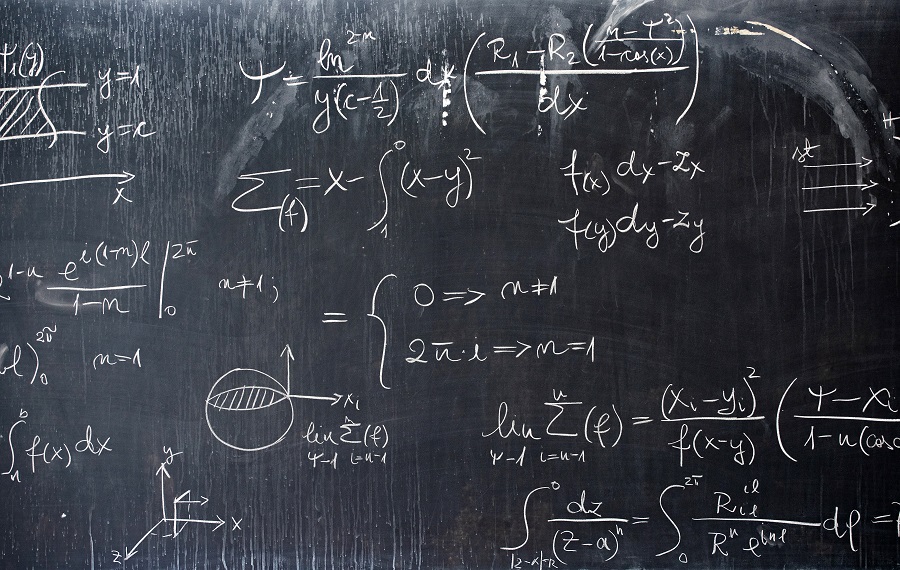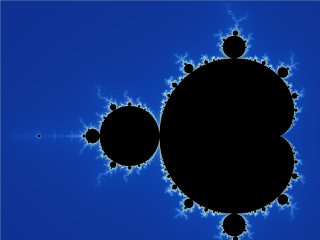Generating equation: Difference between revisions
Fractalguy (talk | contribs) m (→In Allegory) |
Fractalguy (talk | contribs) |
||
| (6 intermediate revisions by the same user not shown) | |||
| Line 33: | Line 33: | ||
The rules built into our [[religious]] and [[legal]] systems are like the generating equation for our [[culture]] and [[society]]. And when we examine these rules we find that each of them is part of a pattern of rules, all based on the generating equation of our fundamental [[moral]] principles surrounding [[life]] and [[death]]. | The rules built into our [[religious]] and [[legal]] systems are like the generating equation for our [[culture]] and [[society]]. And when we examine these rules we find that each of them is part of a pattern of rules, all based on the generating equation of our fundamental [[moral]] principles surrounding [[life]] and [[death]]. | ||
The [[quality of life versus quantity of life]] dichotomy represents the two fundamental viewpoints about what the most important [[moral]] considerations in [[life]] are. Which one you prioritize determines your position on a wide variety of divisive issues. | The [[quality of life versus quantity of life]] dichotomy represents the two fundamental viewpoints about what the most important [[moral]] considerations in [[life]] are. Which one you prioritize determines your position on a wide variety of divisive issues. These are the generating equations for most [[progressive]] versus [[Good Faith Conservatism|conservative]] viewpoints.<blockquote>''The best way to change anything is to change everything.''</blockquote> | ||
When attempting to make changes in [[society]], it is much easier to change the generating equation behind people's opinion on a range of issues, rather than trying to influence them on individual issues. If you want people to support reproductive [[freedom]], and [[sustainability]], and [[racial equality]], and [[universal health care]], you can choose to ignore [[fundamentalist]] [[religion]] and debate each issue on its merits, or you can address the [[belief system]] at the core of people's identity that leads them to oppose things that would improve [[quality of life]]. | When attempting to make changes in [[society]], it is much easier to change the generating equation behind people's opinion on a range of issues, rather than trying to influence them on individual issues. If you want people to support reproductive [[freedom]], and [[sustainability]], and [[racial equality]], and [[universal health care]], you can choose to ignore [[fundamentalist]] [[religion]] and debate each issue on its merits, or you can address the [[belief system]] at the core of people's identity that leads them to oppose things that would improve [[quality of life]]. | ||
| Line 40: | Line 40: | ||
When you strip away [[religion]] and [[cultural]] influences and get down to the core of what drives people's [[morality]] and general outlook on life, it's [[quality of life versus quantity of life]]. | When you strip away [[religion]] and [[cultural]] influences and get down to the core of what drives people's [[morality]] and general outlook on life, it's [[quality of life versus quantity of life]]. | ||
== The Fundamental Fractals == | |||
When you strip beliefs down to the ultimate [[goal]] that they serve, you see how the way that goal is framed, and how we try to optimize our [[ethical]] and [[legal]] systems in service of that goal, creates a unique [[Fractal Geometry of God|fractal pattern]] that reflects and shapes all of the [[beliefs]] that are reasoned from that premise. | |||
The following fundamental [[fractals]] form the foundations from which our [[beliefs]] flow. | |||
* The [[God Concept]] and your general perspective on [[reality]]--[[allegory]] and [[science]] or [[literalism]]? | |||
* How to pursue [[Happiness and well-being|happiness]]--via [[Quality of life versus quantity of life|quantity of life or quality of life]]? | |||
* Are humans naturally good or evil? Is the [[universe]] fundamentally a good place to live or a bad one? | |||
Which side of these three core dichotomies you fall on, and in what combination, determines the vast majority of your [[Ethics|ethical]], [[Religion|religious]], and [[political]] viewpoints. | |||
== In Detail == | == In Detail == | ||
Revision as of 08:21, 1 May 2024

The notion of a Generating Equation or Generating Function is used to help explain a variety of complex systems we are forced to deal with in life.
In Fractals
A fractal is based on a simple generating equation that is used to calculate its form. For example, the Mandelbrot set has a generating equation of z = z^2 + c. That equation, repeated infinitely, creates the infinitely complex pattern pictured here.
A slight change in the parameters of the generating equation can dramatically change the resulting fractal pattern. Anyone that has ever played with a Fractal Generator [1] [2] has seen these effects firsthand. If you've never tried it you absolutely must.
In Allegory

A complex system of any kind is similar to a fractal. It is self-organizing, and the form it takes depends on the rules being followed by the individual actors in that system. In the Mandelbrot fractal, each pixel is assigned a color depending on the result of a calculation. In society, the shape of our institutions is determined by the people who make it up, and the rules their brains obey.
If you want to change the pattern of a fractal, you can try to modify the result of the equation after it has been formed, or you can modify the equation itself. Given the infinite number of unique patterns generated by the equation, it is obvious that trying to override the resulting pattern is fruitless. Your efforts will always be overwhelmed.
The same applies to life, the universe and everything. Because they are all based on complex systems, they must be treated as such. While it may seem more difficult to resolve the conflict between science and religion in order to achieve narrower goals like addressing climate change, it is unfortunately the necessary prerequisite.
In the Creation of the Universe
The laws of physics are the generating equation for the universe. Matter and energy recombine according to the fundamental forces of physics and those rules result in elements, stars, planets, and life. Change any of these fundamental rules and you get a completely different universe. Granted, most of them will annihilate themselves nanoseconds after their creation, but they are still quite different.
In the Creation of Life
DNA is the generating equation for living organisms. Small changes in our genes can have significant impacts on how our bodies form. Genes are read and replicated over trillions of iterations until we reach our final form. If you want to change the form or function of a living organism, it is much more effective to change its genes than to modify the fully grown body.
In Ourselves
Our belief systems form the generating equation for our souls, and the pattern of behavior it creates reverberates forever in the afterlife.
In Society
The rules built into our religious and legal systems are like the generating equation for our culture and society. And when we examine these rules we find that each of them is part of a pattern of rules, all based on the generating equation of our fundamental moral principles surrounding life and death.
The quality of life versus quantity of life dichotomy represents the two fundamental viewpoints about what the most important moral considerations in life are. Which one you prioritize determines your position on a wide variety of divisive issues. These are the generating equations for most progressive versus conservative viewpoints.
The best way to change anything is to change everything.
When attempting to make changes in society, it is much easier to change the generating equation behind people's opinion on a range of issues, rather than trying to influence them on individual issues. If you want people to support reproductive freedom, and sustainability, and racial equality, and universal health care, you can choose to ignore fundamentalist religion and debate each issue on its merits, or you can address the belief system at the core of people's identity that leads them to oppose things that would improve quality of life.
Focusing on the generating equation behind any set of beliefs is the best way to effect large-scale changes in society.
When you strip away religion and cultural influences and get down to the core of what drives people's morality and general outlook on life, it's quality of life versus quantity of life.
The Fundamental Fractals
When you strip beliefs down to the ultimate goal that they serve, you see how the way that goal is framed, and how we try to optimize our ethical and legal systems in service of that goal, creates a unique fractal pattern that reflects and shapes all of the beliefs that are reasoned from that premise.
The following fundamental fractals form the foundations from which our beliefs flow.
- The God Concept and your general perspective on reality--allegory and science or literalism?
- How to pursue happiness--via quantity of life or quality of life?
- Are humans naturally good or evil? Is the universe fundamentally a good place to live or a bad one?
Which side of these three core dichotomies you fall on, and in what combination, determines the vast majority of your ethical, religious, and political viewpoints.
In Detail
Here's how these simple equations generate the amazing fractals this wiki keeps going on about.